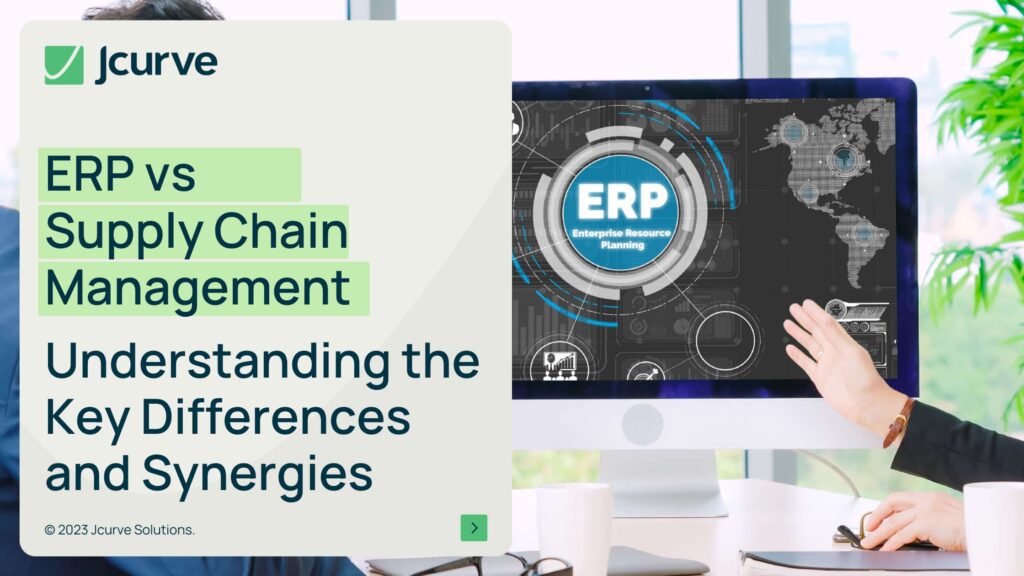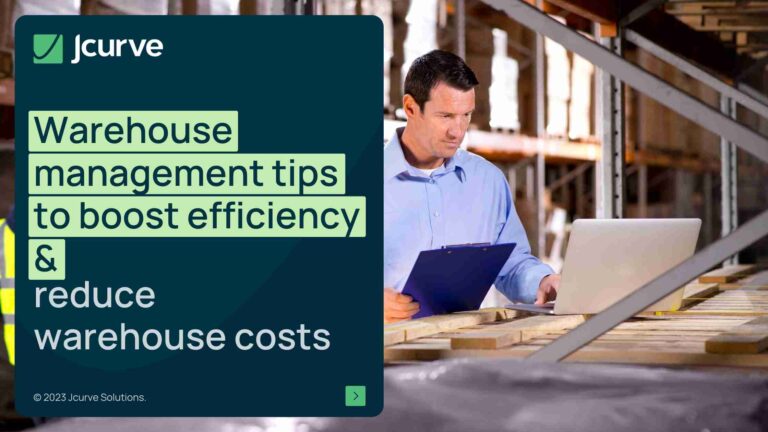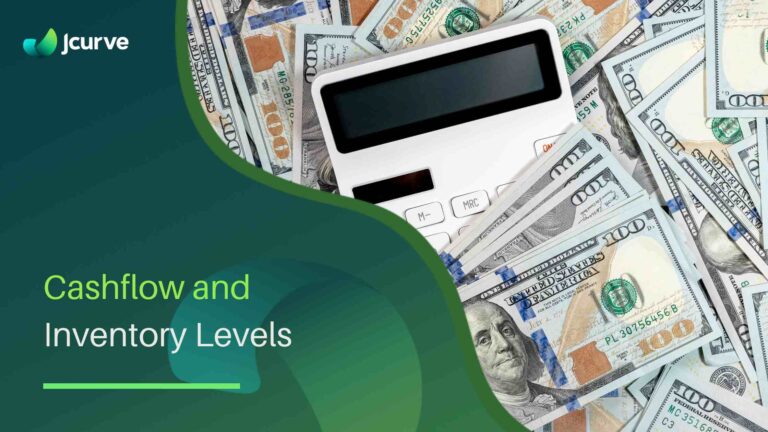In Singapore’s rapidly evolving business landscape, understanding the intricacies of Enterprise Resource Planning (ERP) and Supply Chain Management (SCM) is crucial. Both systems are essential for streamlining operations and enhancing efficiency. Distinguishing between ERP and SCM, as well as leveraging their synergies, is key for strategic business planning in Singapore.
This guide delves into the key differences and synergies between ERP and SCM, highlighting how businesses can optimise their operations by integrating these systems effectively.
What is ERP (Enterprise Resource Planning)?
ERP is a software system designed to streamline and integrate internal business processes across finance, human resources, manufacturing, and other departments. Its primary goal is to facilitate the flow of information within an organisation, enhancing decision-making and efficiency. ERP systems serve as the backbone of a company’s internal operations, centralising data and providing a unified platform for managing various business activities.
- Finance & Accounting: Manages financial transactions, budgeting, and financial reporting.
- Human Resources (HR): Automates employee management from recruitment to retirement.
- Manufacturing: Supports production planning, inventory management, and product lifecycle management.
Customer Relationship Management (CRM): Enhances customer service and sales management.
What is SCM (Supply Chain Management)?
SCM focuses on managing the entire flow of goods and services from raw materials to the final customer. The objective of SCM is to enhance collaboration, efficiency, and responsiveness across the supply chain network, including suppliers, manufacturers, distributors, and retailers.
- Procurement: Securing raw materials and services needed for production.
- Production: Overseeing the manufacturing process and scheduling.
- Distribution: Managing the logistics of getting the final product to the customer.
- Logistics and Transportation: Ensuring efficient, timely delivery of goods.
SCM aims to create a seamless and optimised supply chain that enhances product flow and meets customer demands efficiently.
ERP vs SCM: The Key Differences
While ERP and SCM may seem similar at first glance, several key differences distinguish the two systems:
- Functional Focus: ERP optimises internal business processes, while SCM concentrates on external supply chain operations.
- Objective Alignment: ERP systems streamline and integrate internal operations to improve efficiency and decision-making. In contrast, SCM enhances collaboration and efficiency across the entire supply chain.
- Software Integration: ERP integrates various business processes within an organisation, whereas SCM facilitates integration between different entities in the supply chain.
- Data Management: ERP centralises internal data for comprehensive analysis, while SCM focuses on managing and analysing data across the supply chain to improve logistics and efficiency.
Advantages and Disadvantages
SCM Software
Advantages:
- Enhanced supply chain visibility with real-time tracking.
- Improved supplier relationships through better communication and collaboration.
- Increased efficiency and reduced costs by optimising logistics.
- Better demand forecasting with data analytics.
- Agility and flexibility to quickly adjust to disruptions.
Disadvantages:
- Complex integration with existing systems.
- Dependency on external entities for success.
- High initial setup costs.
- Requires continuous updating to remain effective.
- Risk of overreliance on software.
ERP Solutions
Advantages:
- Streamlined business processes integrating all departments.
- Improved data accuracy and decision-making with centralised data.
- Increased productivity by automating routine tasks.
- Scalability to grow with the business.
- Enhanced security with robust data protection.
Disadvantages:
- High implementation costs.
- Complexity and user adoption challenges.
- Lengthy implementation process.
- Flexibility issues with customizations.
- Dependence on the vendor for updates and support.
How ERP and SCM Complement Each Other
Integrating ERP with SCM systems can elevate business performance by merging their distinct benefits, resulting in enhanced operational insight, decision-making, and customer satisfaction.
- Enhanced Visibility: End-to-end visibility across internal operations and the external supply chain.
- Streamlined Operations: Reduced redundancies and optimised resource allocation.
- Improved Inventory Management: Accurate inventory tracking and improved order fulfilment rates.
- Better Demand Forecasting: Combining internal sales data from ERP with external supply chain insights from SCM.
Implementing ERP and SCM Systems
Adopting ERP and SCM systems can seem daunting, but with the right approach, organisations can smoothly navigate the implementation process and realise the benefits of integrated business and supply chain management.
- Assessment and Planning: Evaluate current processes and identify areas for improvement.
- Choose the Right Systems: Select ERP and SCM systems that align with business needs.
- Engage Stakeholders: Involve key stakeholders early in the process.
- Data Migration and Integration: Plan carefully for data migration and system integration.
- Training and Support: Provide comprehensive training to maximise system benefits.
Jcurve offers expert consulting, implementation, and integration solutions for Supply Chain Management (SCM) with NetSuite ERP. Their team of specialists provides tailored advice to optimise SCM processes, ensuring businesses leverage NetSuite’s comprehensive capabilities for improved efficiency and visibility across the supply chain.
Cost Analysis: ERP vs SCM Software
Variables Influencing Cost:
- Software Vendor: Different providers offer varied pricing strategies and service levels.
- Deployment Partner: Costs vary based on the partner’s expertise and integration complexity.
- Licensing Model: Options include perpetual licences or subscription-based models.
- Initial Investment: Includes software purchase, implementation, and setup.
- Maintenance Fees: Ongoing costs for updates, support, and troubleshooting.
- System Management: Costs for managing the system internally.
- Training: Investment in user training.
- Hardware Integration: Costs for necessary hardware upgrades.
- Software Integration: Expenses for integrating with existing systems.
- Updates and Security: Regular updates are essential for functionality and security.
- Deployment Model: On-premise vs. cloud-based solutions impact costs.
- Customization: Tailoring the system to specific needs increases costs.
- Total Ownership Costs: Cumulative costs over the system’s lifecycle.
Conducting a Cost-Benefit Analysis: A comprehensive analysis should consider direct costs and anticipated benefits in terms of efficiency, productivity, and competitive advantage.
Key Considerations When Choosing ERP and SCM Solutions
- Business Requirements: Define needs and objectives clearly.
- Scalability: Choose systems that can grow with your business.
- Integration Capabilities: Ensure seamless data exchange and process coordination.
- Vendor Support: Consider the level of support and the presence of a user community.
ERP systems integrate various internal processes, while SCM systems focus on external supply chain optimisation. The choice should align with strategic goals and operational needs.
NetSuite ERP offers scalable and integrative solutions that cater to both internal processes and supply chain optimisation.
Challenges and Best Practices in Implementation
- Data Migration and Integration: Plan meticulously for smooth operation.
- Change Management: Prepare for organisational change with adequate training.
- Continuous Improvement: Monitor performance and optimise system use post-implementation.
Partnering with Jcurve for NetSuite ERP solutions ensures access to a team of accredited consultants in Singapore, renowned for their expertise and tailored approach to ERP integrations. Jcurve’s extensive experience guarantees a seamless, effective transformation of your business processes.









